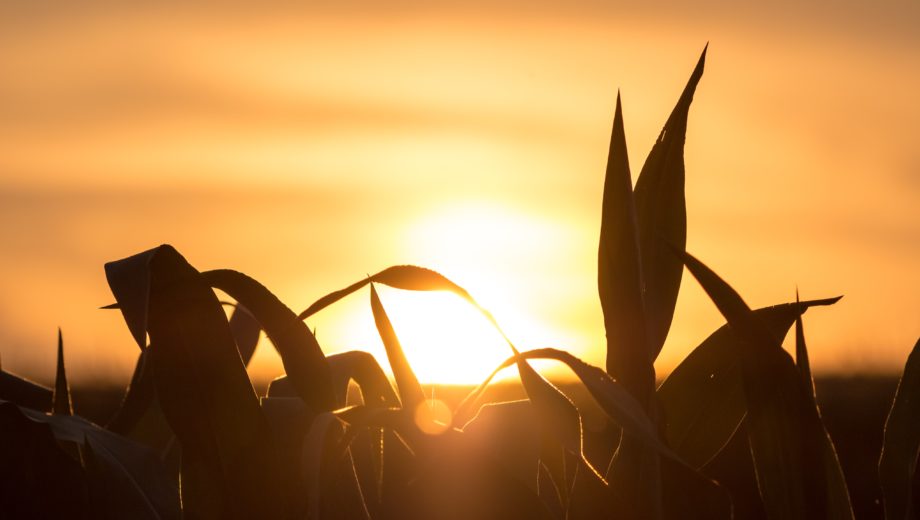
In a tumultuous 2020, leading companies and NGOs raise their ambition for a better food and ag system
As we head into the final few weeks of 2020—a year that has unfolded in ways that none of us could have expected—I’ve been reflecting on what this year has meant, what the Midwest Row Crop Collaborative (MRCC) and its partners have accomplished, and what lies ahead.
For me, 2020 has been a year of contrasts. Against the backdrop of a once–in–a–century health crisis, turbulent politics, social unrest, and all the disruption these brought into our organizations, jobs, and personal lives, we’ve seen corresponding acts of adaptation and determination to create change. While at moments it may have felt like we were just getting by, looking back on the year I have to marvel at the ambition we’ve seen, and the progress made. Rather than retreating, MRCC members stepped forward and made bold commitments for a stronger, more resilient food and agriculture system.
- Walmart announced its goal to become a regenerative company, including targeting zero emissions by 2040 and aiming to protect, manage or restore at least 50 million acres of land by 2030.
- Cargill set a goal to advance regenerative agriculture practices across 10 million acres of North American farmland by 2030 to benefit the long-term profitability and resiliency of farmers while simultaneously advancing the company’s progress against its science-based climate commitment to reduce greenhouse gas emissions in its global supply chains by 30 percent per ton of product by 2030.
- Unilever announced a new series of sustainability commitments, including reaching net zero emissions from all its products by 2039, investing $1.1 billion in a new dedicated Climate & Nature fund, and introducing a Regenerative Agriculture Code for all suppliers.
- Kellogg Company announced progress towards its Better Days commitment, including supporting more than 433,000 farmers, workers and women through conservation agriculture programs, and was among the most sustainable food & agriculture companies named in the Dow Jones Sustainability Indices.
- PepsiCo reported that through the company’s Sustainable Farming Program (SFP), in 2019, nearly 80% of its farmer-sourced agricultural raw materials, including corn, were verified as sustainably sourced, approaching its goal of reaching 100% sustainably sourced by the end of 2020.
- Bayer launched its Bayer Carbon Initiative, a pilot program that will pay farmers for capturing carbon in cropland soils. The company seeks to enroll about 1,200 row crop farmers in the first season, scale up in upcoming seasons, and ultimately expand to other countries.
- Environmental Defense Fund (EDF), The Nature Conservancy (TNC), and World Wildlife Fund (WWF) each received $100 million grants from the Earth Fund to advance their innovative solutions to address climate change. TNC and EDF also combined efforts with six other organizations to establish the Food and Agriculture Climate Alliance, which aligns interests with organizations representing farmers, ranchers, forest owners, and the food sector to create a set of shared climate policy recommendations.
Building on the impact from previous work together, MRCC members made strides in their systems change work: developing a new campaign for consumer engagement on sustainable agriculture, leveraging behavioral science to support farmer and advisor networks, exploring models to incentivize cover crops, and advancing new lending approaches that support soil health. Members continue to share what they learn from more than a half dozen other collaborative projects together on topics like the business case for soil health, financing resilient agriculture, and reaching middle adopters with conservation practices.
In 2020, MRCC expanded what it communicates to the public and how, through social media, articles, a new web site, and speaking at events including VERGE 20 and the Sustainable Ag Summit. We plan to release a progress report covering our 2020 achievements mid-next year.
Looking ahead to 2021, we plan to build on this foundation of progress to move our collective work forward, including:
- Sharing outcomes and lessons learned from our systems change projects and pursuing collaborative opportunities between MRCC members and partners to test and scale strategies for a more sustainable food and agriculture system.
- Supporting the development of policy that incentivizes soil health-building farming practices in row crop systems and removes barriers to their scaled adoption.
- Continuing to bolster the business case for sustainable practices and regenerative agriculture.
- Deepening our understanding of how issues of justice, equity, diversity, and inclusion (JEDI) should be addressed in our work.
- Welcoming key new members into MRCC who can strengthen and expand our impact across the food and agriculture value chain.
I am under no illusion that 2021 will be easy, but I’m excited about what we can all accomplish together next year. Despite the unmistakable challenges of 2020, MRCC members have doubled down on their ambition. In 2021, we are poised to see a broad surge in energy and resources directed towards sustainable and regenerative agriculture, and MRCC is prepared to help deliver the change we so urgently need.
A fundamental premise of MRCC is that change happens through new connections. Moving into this important year, we are actively looking for new members who are stepping up to lead change for a more sustainable and regenerative system, as well as project partners, proposals for new solutions, opportunities for sharing learning, and other approaches that could benefit from MRCC’s support. If you see yourself and your work in any of these opportunities, we’d like to hear from you at [email protected].